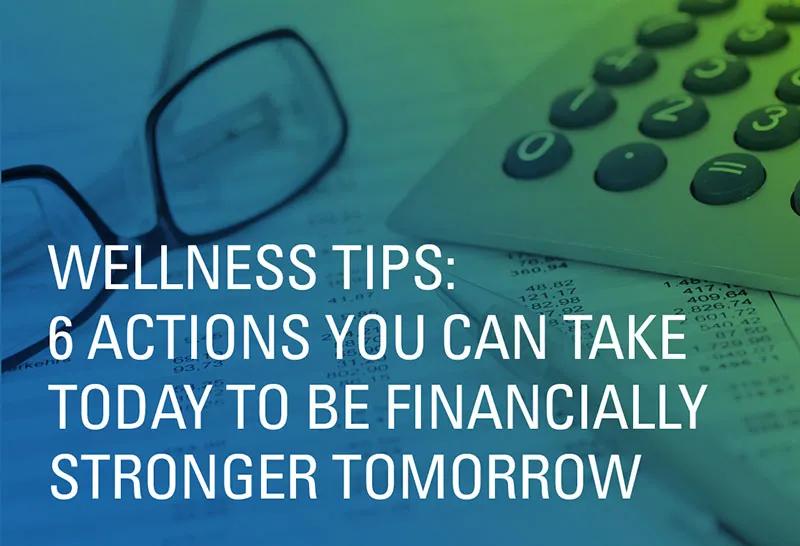Even Geniuses Get Bad Grades Sometimes

If you feel discouraged because you’ve received a few bad grades, there’s something you need to know: you might be following in the footsteps of greatness. No, seriously. Read on to learn about a few geniuses who struggled with school and still enjoyed success in their lives.
Our goal is to encourage you and remind you that becoming good at something may require failing miserably at first. There may be times when completing healthcare degree programs can be challenging. However, it’s important to realize a few bad grades do not define your education journey. What matters most is what you do after you get those bad grades.
Giving Up is the Only True Failure
There’s a saying that “practice makes perfect.” In other words, if you don’t succeed at something the first time, keep trying. Research shows that this approach pays off, especially when training for a healthcare profession.
As an example, one study found that the more dental students practiced advanced dental simulation, the better their scores on the exams.1 This is good news whether you’re in a dental assistant program or another healthcare training program and struggling with poor grades. Keep practicing. Keep learning the skills you need to help you score higher grades.
One could argue that the more experience you have with failure the better. Knowing what doesn’t work helps give you a better idea about what may work instead. Plus, knowing why you failed once can prevent you from failing again later.
Sure, ideally you want good grades in your healthcare program. However, if you let poor grades beat you and you quit, then you only know what doesn’t work. Find the answer for what does work and keep walking toward success.
There are Benefits to “Staying the Course”
Imagine that 100 people are given the same problem to solve. The longer it takes to find the solution, the more people quit. If only one person out of the 100 actually solves the problem – even if it takes a month – three things can be said about them.
First, the person is admirable for hanging in there long enough. It shows they have a high level of resilience, which is important in healthcare roles. Research indicates that developing resilience can help healthcare workers better face common challenges in this industry, such as high levels of stress and burnout.2
Second, the person now has more expertise about that subject because they spent so much time with it. They have more in-depth knowledge of what the problem entails and the important factors for solving it. This can help them if they face similar issues in the future.
Third, the person has shown their problem-solving skills. Like with resilience, taking a problem-centered approach can help healthcare workers cope with on-the-job stresses, even contributing to better mental health.3 Greater mental health and psychological well-being in healthcare workers even extends to patients in terms of improved experiences of care.4
Failure is experience as long as you keep on trying.
Discover Your Inner Strength
Here’s another scenario. Imagine that you and some friends have hiked to the bottom of the Grand Canyon to go camping. In the morning, before starting your trek back out, you make the mistake of skipping breakfast. After a few miles of hiking straight uphill, carrying your equipment, you became weak. You’re stuck halfway and have two choices: Hike back down and leave your friends behind or continue hiking up in spite of the fact that you feel unable to do it. What do you do?
In this type of situation, you’re likely to discover a new willpower, a new inner strength you didn’t know you had, that enables you to get out of the canyon. Apply this same inner strength when faced with a learning-based challenge such as bad grades and your refusal to give up can help you discover that you can do more than you thought possible.
Even if it feels like you’re not going to make it, don’t give yourself permission to quit. You’re stronger (and smarter) than you feel!
A Lesson in Pushing Past Bad Grades from Lowell Wood
Lowell Wood, Ph. D., is an internationally renowned astrophysicist who has helped advance computer-assisted design and x-ray laser technology, even taking part in the development of defense systems to protect the U.S. from ballistic missile attacks.5 By many people’s accounts, he would be considered a genius. Yet, he didn’t do well in school.
In an older interview with Ashlee Vance, Wood said that he “didn’t do well in any classes,” often failing or receiving the lowest score on the course’s first exam.6 It was only with repetition and effort that he got better marks in class, eventually skipping a couple of grades in school and entering UCLA as a student at age 16.
Other Geniuses Who Struggled with School
Wood isn’t the only person who didn’t necessarily have an easy time in school, yet still went on to do great things. Other people often considered geniuses did the same, including:7
- Thomas Edison, who went on to invent the phonograph, incandescent lamps, and numerous other world-changing innovations
- Albert Einstein, who received the Nobel Prize in physics and created the famous formula E=mc2
- Steve Jobs, who co-founded the tech company Apple
The Bottom Line: Don’t Give Up Because of a Few Bad Grades
Even if you’ve gotten a few bad grades in your healthcare classes, don’t give up. Sometimes the path to success isn’t linear; you may have a few ups and downs along the way. As long as you keep trying and keep pushing, great things can happen.
Ultimate Medical Academy also offers a variety of student services that can help when you run into school-related challenges. Our Learner Services and Academic Services teams are full of caring and compassionate individuals available to help learners succeed with one-on-one tutoring and other academic services.
Healthcare education programs aren’t always easy, but you don’t have to get through them alone. We are here to help in any way we can. Let us know what we can do for you and we’ll get through this together. We are here for you!
1 https://onlinelibrary.wiley.com/doi/full/10.1002/jdd.13017
2 https://www.ncbi.nlm.nih.gov/pmc/articles/PMC9386779/
3 https://www.sondermind.com/resources/articles-and-content/problem-focused-coping/
4 https://www.sciencedirect.com/science/article/pii/S2666142X23000322
5 https://www.agci.org/people/0034x000013tCFtAAM/lowell-l-wood
6 https://www.bloomberg.com/features/2015-americas-top-inventor-lowell-wood/
7 https://essayhub.com/blog/geniuses-who-didnt-succeed-at-school
Request Information
Talk with us. Start your journey.
Complete this form and we'll call you to explore options at UMA and answer your questions. We'll also email you info on how to get started. We're with you at every step!
Request Information
Talk with us. Start your journey.
Complete this form and we'll call you to explore options at UMA and answer your questions. We'll also email you info on how to get started. We're with you at every step!
About the Author
 Christina DeBusk
Christina DeBuskChristina DeBusk is a freelance writer who has been providing health and wellness content to healthcare organizations such as the American Chiropractic Association and International Sports Sciences Association (ISSA) since 2011. She obtained her Bachelor of Science in Sociology from Central Michigan University, minoring in psychology. She has also earned several ISSA certifications, including Certified Personal Trainer and Certified Nutrition Specialist, achieving the status of Elite Trainer.
Related Content


